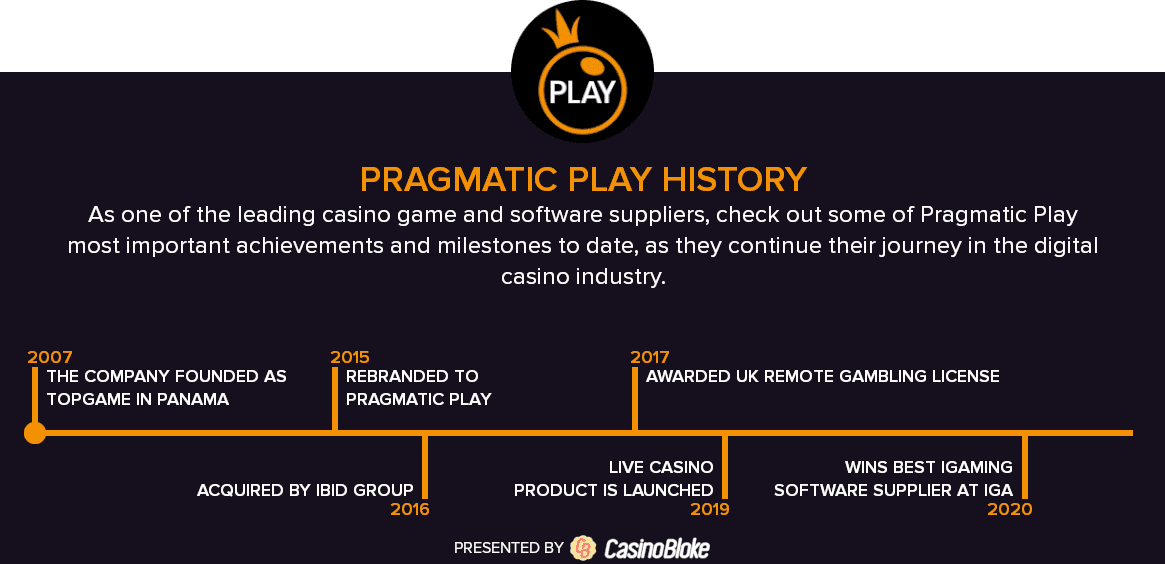Pragmatic Play History
False Play now Demo. False Play now Demo. False Play now Demo. Pragmatic Play History. In 2015, Pragmatic Play Software suddenly appeared on the scene, with a lot of rumors surrounding its creation. The next year, Pragmatic received a gaming license from Curacao. Since its inception, Pragmatic Play has produced a number of high-end video slots. These games use HTML5 as the programming language, a form of. The history of the pragmatic theory of truth is tied to the history of classical American pragmatism. According to the standard account, C.S. Peirce gets credit for first proposing a pragmatic theory of truth, William James is responsible for popularizing the pragmatic theory, and John Dewey subsequently reframed truth in terms of warranted.
Antecedents in modern philosophy
Pragmatism was a part of a general revolt against the overly intellectual, somewhat fastidious, and closed systems of idealism in 19th-century philosophy. These boldly speculative philosophers had expanded the subjective experience of the mind until it became a metaphysical principle of cosmic explanation. For the idealist, all of reality was one fabric, woven from parts that cohered by virtue of the internal relations that they bore to one another, and this reality was often interpreted in abstract and fixed intellectual categories. The theory of evolution, then still new, seemed to the pragmatists, on the other hand, to call for a new, nonidealist interpretation of nature, life, and reason—one that challenged the long-established conceptions of fixed species. The new emphasis was on the particular variations and struggles of life in adapting to the environment. Philosophically, the fact of growth and the development of techniques for instituting changes favourable to life became the significant factors rather than the idealist’s ambitious rationalistic account of human goals and of the universe in general. Important developments in natural science and logic also encouraged a critical attitude toward earlier systems.
There were two main influences on the early formation of pragmatism. One was the tradition of British empiricism in the work of John Stuart Mill, Alexander Bain, and John Venn, which stressed the role of experience in the genesis of knowledge—and particularly their analyses of belief as being intimately tied in with action and, indeed, as definable in terms of one’s disposition and motive to act. The work of the 18th-century empirical idealist George Berkeley, which presented a theory of the practical and inferential nature of knowledge and of sensations as signs (and thus predictive) of future experience, led Peirce to refer to him as “the introducer of pragmatism.” The other major influence came from modern German philosophy: from Kant’s analysis of the purposive character of belief and of the roles of will and desire in forming belief and his doctrine of “regulative ideas,” such as God or the soul, which guide the understanding in achieving systematic completeness and unity of knowledge; from Romantic idealists, for whom all reason is “practical” in expanding and enriching human experience; and from Hegel’s historical and social conception of changing and developing subject matters. In sum, Peirce was profoundly impressed by Kant and by the Scottish philosophy of common sense; James by British empiricism and by the voluntarisms (stressing the role of choice or will) of the genetic epistemologist James Ward and the relativistic French personalistCharles-Bernard Renouvier; and Dewey by Samuel Taylor Coleridge’s version of Kant’s active conception of mind and by neo-Kantian and Hegelian idealism.

Pragmatic Play History Examples

Pragmatic Play History Definition
Finally, to these influences must be added that of American social experience in the 19th century: the rapid expansion of industry and trade and a popular optimism, with its roots in Puritantheology, holding that hard work and virtue are bound to be rewarded. Both the precariousness of frontier life, however, and the rapidly expanding economy weakened the prevailing Calvinistic belief in a predestined future and encouraged the emergence of inventiveness, a sense of living still in the “New World experiment,” and adoption of the ideal of “making good.”